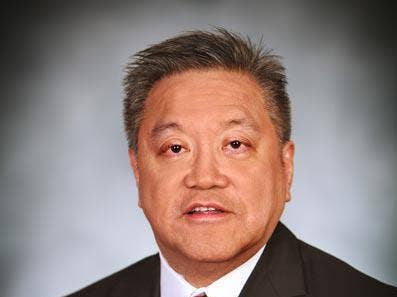Broadcom Changes Mind, Opts Not To Sell RF Wireless Chip Business
‘After careful consideration, we have come to the conclusion that continuing to invest in and operate our wireless asset will create the most value for our business and for our shareholders,’ Broadcom CEO Hock Tan tells investors Thursday.

Broadcom has decided to retain its radio-frequency wireless chip business after landing a major, multi-year deal with its largest smartphone customer.
“After careful consideration, we have come to the conclusion that continuing to invest in and operate our wireless asset will create the most value for our business and for our shareholders,” Broadcom CEO Hock Tan told investors Thursday during the company’s earnings call.
The San Jose, Calif.-based semiconductor giant said a new three-year supply agreement has allowed Broadcom to become closer and more strategically aligned with its largest smartphone customer, Tan said. The deal gives Broadcom both technology and roadmap alignment around its radio-frequency (RF) components, perpetuating the strong product and franchise the company has in the space.
[Related: Accenture To Buy Symantec Cyber Security Services Unit From Broadcom]
“What really changed our mind to a large extent is the fact that there is now clarity and certainty of a long-term roadmap and very strong profit position with respect to high-end, next-generation 5G phones,” Tan told investors.
The Wall Street Journal reported in December that Broadcom was working with investment bank and financial services firm Credit Suisse Group AG to find a buyer for its RF unit, which makes filters used in cellphones to clarify signals, especially for 5G use cases.
The report came a week after Broadcom told investors during December’s earnings call that it would reclassify its wireless units as outside its core semiconductor business. During the December call, Tan referred to Broadcom’s wireless businesses as “stand-alone franchises” that don’t go with the rest of the company’s business segments.
Tan on Thursday disputed calling the wireless chip businesses “non-core,” saying that his previous reference to them as financial assets alluded to the fact that they have been and continue to operate as franchises. The decision to keep the RF unit has nothing to do with the value Broadcom could have achieved from the sale, according to Tan.
“These are product franchises, the way we define them is strong technology where we find the leads and we have a good position,” Tan said Thursday. “And we continue to be in that position, especially with 5G phones coming with the plethora of spectral bands that require our unique filter, which drives the sustainability of the franchise.”
Broadcom’s sales inched ahead to $5.86 billion in the quarter ended Feb. 2, up 1.2 percent from $5.79 billion the year prior. That fell short of Seeking Alpha estimates of $5.99 billion.
Net income for the quarter nosedived to $311 million, or $0.74 per diluted share, down 62 percent from $818 million, or $1.97 per diluted share, last year. On a non-GAAP basis, net income dipped to $2.37 billion, or $5.25 per diluted share, down 0.9 percent from $2.39 billion, or $5.55 per diluted share, the year prior. That missed Seeking Alpha’s earnings per share estimate of $5.36 per share.
Broadcom’s stock tumbled $11.78 (5.38 percent) to $207 per share in after-hours trading Thursday. That’s the lowest the company’s stock has traded since July 2018.
On a segment basis, Broadcom’s semiconductor solutions sale dropped to $4.19 billion, down 4.4 percent from $4.39 billion the year prior. Meanwhile, infrastructure software sales jumped to $1.67 billion, up 18.8 percent from $1.4 billion last year. The infrastructure software results include revenue from the Symantec Enterprise Security business since the acquisition closed in November 2019.
For the coming quarter, Broadcom expects EBITDA (earnings before interest, taxation, depreciation and amortization) between $3.06 billion and $3.21 billion on sales of between $5.55 billion and $5.85 billion.